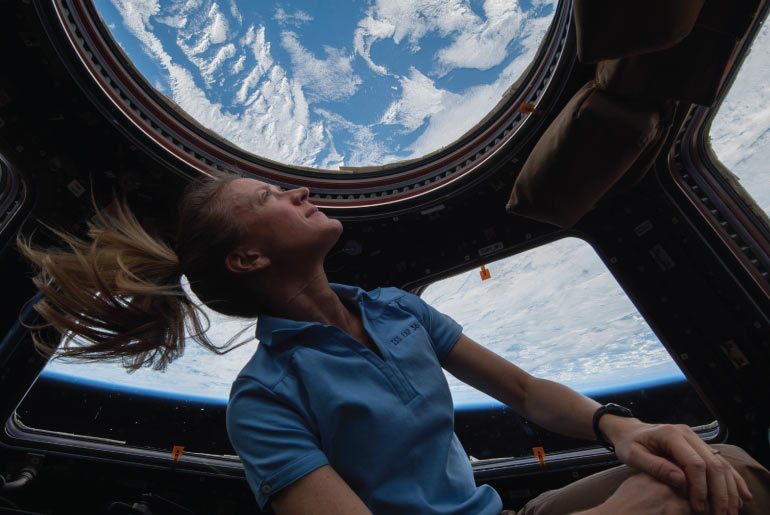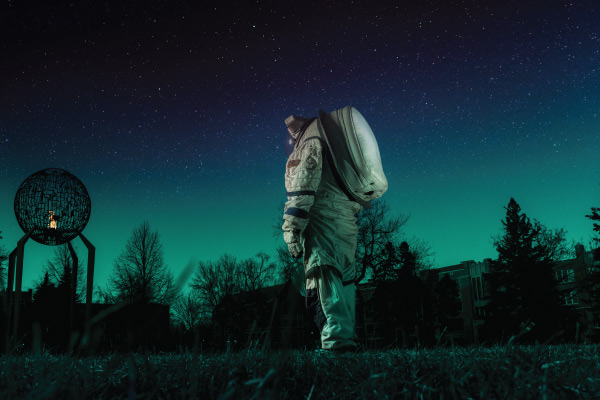An Astronaut’s Perspective
They call it the “overview effect,” a cognitive shift that occurs when you see Earth from space.
Author Frank White coined the phrase in 1987. He noticed a common thread in astronauts’ stories: they were struck by a sense of interconnectedness and a profound appreciation for just how fragile the planet is. I didn’t know the term when I first experienced the overview effect. That moment came when I was a mission specialist on the Space Shuttle Discovery in May 2008. An hour into orbit, we needed to open the cargo bay doors to reject heat from the radiators. I was working with a crewmate, looking out the aft windows into the payload bay.
As the doors opened, revealing Earth below, I was stunned by its beauty. “Oh my God,”
I thought. The colors were the most vibrant I’d ever seen in my life, set against
the blackness of space. It was almost shocking to the eye. And that thin blue line
on the horizon, our atmosphere, was breathtaking. It felt like an oasis in the vastness
of space – fragile and precious. I wish I had the words of a poet to truly capture
the experience.
On the International Space Station in 2013, I had a little more time to take in the
view. I could sit in the cupola, just watching. I saw the intricate dance of cloud
patterns, the seamless flow of water from rivers to oceans, and the lack of borders.
It’s impossible not to feel the interconnectedness of everything.
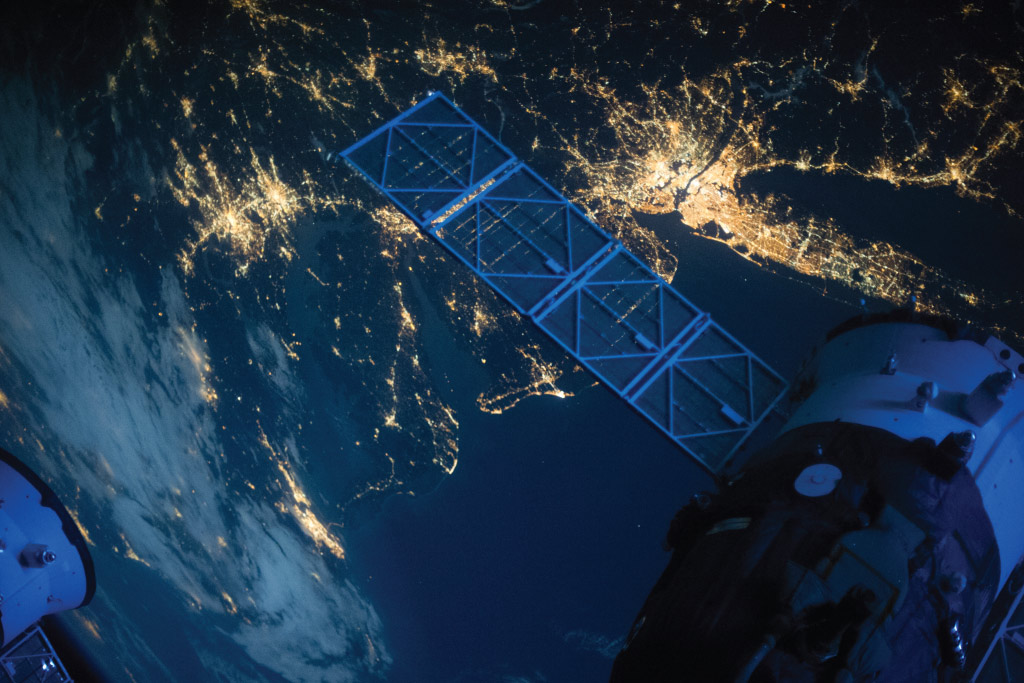
Earth observation taken during a night pass by the Expedition 37 crew aboard the International Space Station (ISS) in 2013. This is New York and south along the U.S. east coast at night. Courtesy: NASA
Home takes on a new meaning when you look down from that rare perspective. As fellow astronaut Don Pettit said, your concept of “home” expands with each successive journey you take. First you travel from your house and back, then your neighborhood, your city, and your country. Each time you return, you define “home” differently. When you travel to space, Earth itself becomes home. You realize how much you want to protect it, to take care of it. You see the marks we’re making, the potential for harm, and you understand that this is all we have.
The overview effect also brings a profound sense of empathy. One day, I read about strife in Syria and later, flying over the region, I felt an intense connection to the people below. It was a strange, powerful feeling, realizing their suffering was happening right there, beneath me. Another time, I flew over upstate New York, knowing my then 3-year-old son was there visiting his grandparents. I wondered what he was doing, feeling that invisible thread connecting us.
From space, everyone seems important. You look down at a random spot on Earth and wonder about the lives unfolding there, the children playing, the parents caring. You feel a connection to every human being, a sense that we share a destiny.
Even now, years later, the feeling stays with me. It’s not the same as looking down from 250 miles above the Earth, of course. But the sense of awe, the understanding of our shared home, and the desire to protect it remains.
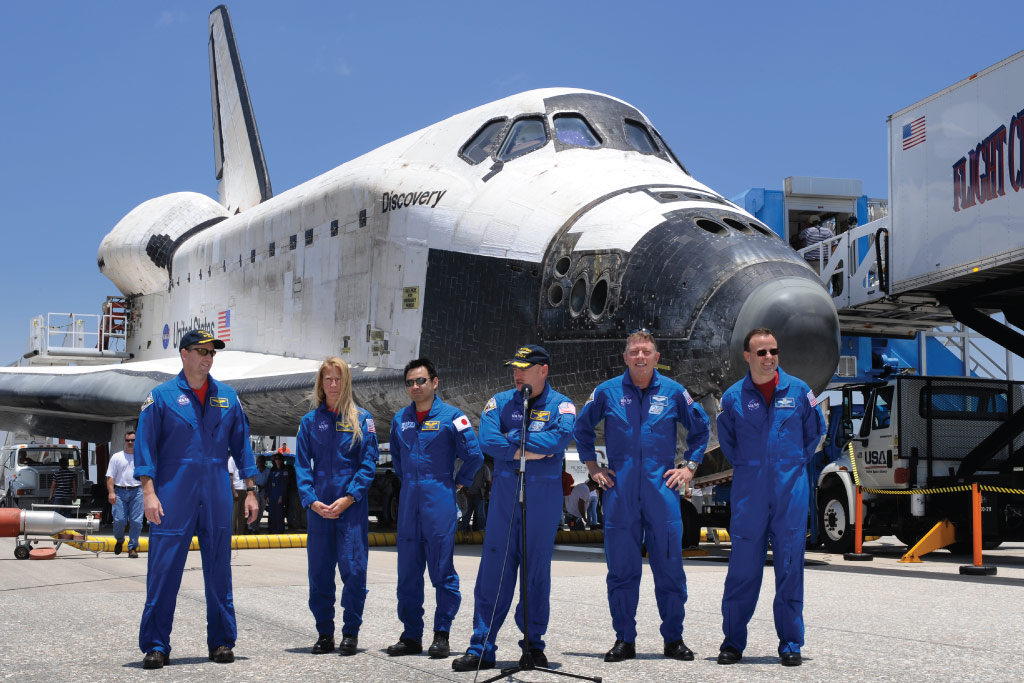
STS-124 crew members, from left, pilot Kenneth T. Ham, mission specialist Karen L. Nyberg, mission specialist, Japan Aerospace Exploration Agency's (JAXA) Akihiko Hoshide, Commander Mark E. Kelly, mission specialist Michael E. Fossum and mission specialist Ronald J. Garan talk about their STS-124 mission shortly after landing the space shuttle Discovery at 11:15 a.m. on June 14, 2008, at the Kennedy Space Center in Cape Canaveral, Florida. Courtesy: NASA/Bill Ingalls
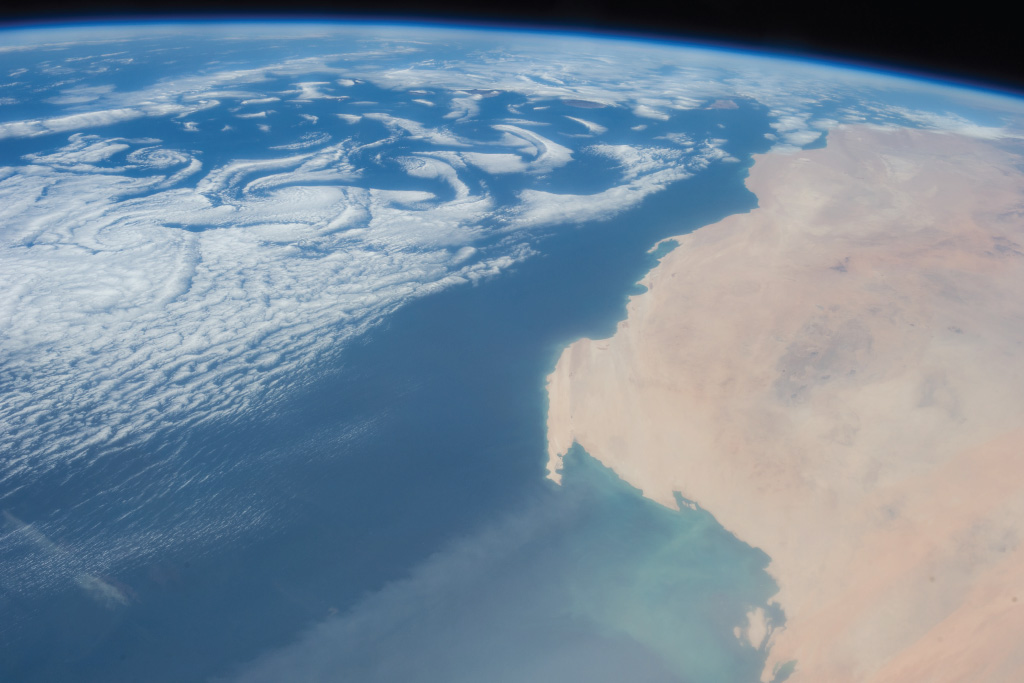
Earth observation taken during day pass by an Expedition 36 crew member on board the International Space Station (ISS) on July 20, 2013. Courtesy: NASA/Karen Nyberg

